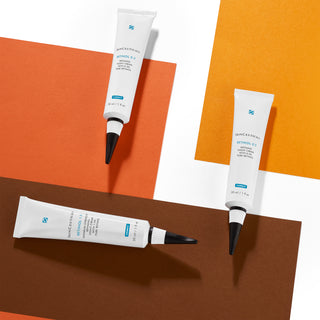
Retinol, or retinoids, are the darling of the skincare world, offering a solution to all number of skin concerns and heralded for their rejuvenating properties, but what is retinol and is it right for you?
So, what exactly is retinol?
Retinol is basically a topical Vitamin A that belongs to the retinoid family. Retinol is the strongest retinoid that you can buy without prescription. Weaker retinoids such as retinyl acetate and retinyl palmitate are often found in skincare for more sensitive skin, but the effects are slower and less dramatic.
What does retinol do?
Retinol resurfaces the skin by speeding up cell renewal and promotes the production of collagen, helping to soften wrinkles and fine lines.
In a more technical sense, retinoids communicate with the cells to encourage them to renew faster than usual, which helps to treat sun damage, age spots, wrinkles and hyperpigmentation, as using retinol actually encourages the production of blood vessels in the skin which, in turn, is what helps even out skin tone.
What are the skin types that is it good for?
Retinol is good for all skin types and is excellent as an anti-ageing solution, it treats rosacea and hyperpigmentation, helps to reduce the appearance of sun damage and, as it actively resurfaces your skin, it is good for acne and acne scarring.
We would always recommended that you introduce retinol into your regime slowly, maybe using it once or twice a week to being with, building up to nightly use.
Consider looking for buffered retinol products, meaning the retinol is combined with another ingredient (such as niacinamides or vitamin E) to ‘soften’ the impact, if your skin is sensitive. This will allow you to introduce higher strength products into your regime without experiencing sensitivity.
It is recommended that, when using retinol at night, you use a good day cream that has a minimum SPF30 as the skin can become more photosensitive.

